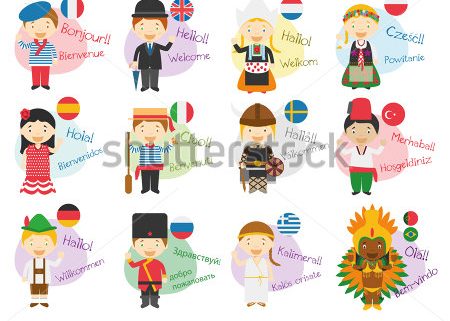Our Sworn Translation Department is headed by Ana Beatriz Miranda Fernandes, a Sworn Public Translator & Commercial Interpreter for the English language, registered at JUCERJA under number 180 and member of the Professional Association of Sworn Public Translators and Commercial Interpreters of the State of Rio de Janeiro (ATP-RJ). Sworn translation is the translation of any document from English to Portuguese or vice-versa, which bears public credit in any location of the Federative Republic of Brazil or abroad, and the translated document has the same legal value as the original document.
Every patent report has to be translated in an accurate and clear manner in order to be ready for filing at patent offices worldwide, and needs to be checked word for word by our patent translators, who specialize in specific fields such as biochemistry, mechanics, medicine, pharmaceutics, oil & gas, and telecommunications.
Software Testing is carried out after the full translation is complete. It is divided into two categories: linguistic and functional. In general, our software testers are translators with a more technical profile, who run the software testing scripts searching for language and/or functionality issues that need to be fixed.
Marketing Translation & Customization is a specialized translation service that requires the adaptation of the source materials to the linguistic, cultural and marketing requirements of the target public.
This type of translation service not only consists of translating texts from one language into another, but it also involves writing persuasive and appealing content that has a significant impact on the local audience.
Specialized Technical Translation involves the translation of documents produced by technical writers (owner’s manuals, user guides, etc.), or more specifically, texts which relate to technological subject areas or texts which deal with the practical application of scientific and technological information.
Software localization is the process of adapting a software product to the linguistic, cultural and technical requirements of a target market. Software localization is the translation and adaptation of a software or website, including the software itself and all related product documentation. Read more
As the world has become a smaller place, ecommerce market is now spreading all over the globe. The only constraint in global expansion apart from logistics is the language barrier. How do you communicate with the customers who don’t speak in your language and yet you want to sell products to them? By using a multilingual store. Having a multilingual store can surely be a competitive advantage for your ecommerce business. Let’s see how.
It expands your customer base
Most websites on the web are in English. But what about the non-English speaking people throughout the world? And it’s not a just a few. A majority of the world population still relies on languages other than English. So, having a multilingual store can help you gain customers who cannot or do not prefer English as a standard means of communication.
It’s cost effective
Yes, having a multilingual site doesn’t cost you much more than having a unilingual ecommerce site. If you have a magento ecommerce site, it could be as easy as just adding a language translator extension. For a slightly higher cost, you are earning more customers and hence more sales. As there’s no need to create separate websites or incur extra maintenance costs for your multilingual site, it is definitely a cost effective way to increase your revenues.
A step ahead of the competition
Your competitors are probably offering the same products as you. The prices can’t vary to high levels as well. To survive amidst the tough competition is difficult in that case. You always have to be a step ahead. Having a multilingual site can be the step you had been looking for. In spite of selling the same products at near about same costs, you get more customers, helping your business to emerge as one of the most popular in your industry.
Search Engine Optimization
Maybe your business is based in a country or place where English is the language followed by search engines to show up results to people. But it’s not so everywhere. Many places don’t use the leading search engines like Google, Yahoo, Bing, etc. as their default search engines. Their search engines support only their native languages. In that case, your business will only be visible if it has content in their language. So, having a multilingual site helps you with search engine optimization at such places.
Trust Building
Yes, it helps in trust building for your ecommerce as well. You can blame it to customer psychology. When they are reading or referring to something in the language they are proficient in, they are bound to trust it more than a language they are barely just familiar with.
With the ever increasing competition in the market, limiting your ecommerce to a confined geographical location is never a smart idea and to reach to people worldwide, you need language to be the tool. A multilingual store is definitely something you should consider if you want your revenue graph to soar higher than it ever was!
News
 Landbound: Language, Translation and Oral History – Free online event n May 8thMay 4, 2022 - 5:40 PM
Landbound: Language, Translation and Oral History – Free online event n May 8thMay 4, 2022 - 5:40 PM LocLife™ — Where Are the Women Leaders?March 30, 2022 - 11:05 PM
LocLife™ — Where Are the Women Leaders?March 30, 2022 - 11:05 PM Happy International Women’s Day!March 8, 2022 - 5:43 PM
Happy International Women’s Day!March 8, 2022 - 5:43 PM LocLife™ — Emotional Intelligence in LeadershipJanuary 18, 2022 - 6:51 PM
LocLife™ — Emotional Intelligence in LeadershipJanuary 18, 2022 - 6:51 PM










